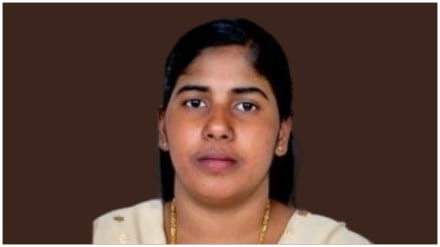Kerala Nurse death sentence: The Ministry of External Affairs (MEA) confirmed on Tuesday that it is providing full assistance to secure the release of Nimisha Priya, a nurse from Kerala. This follows her death sentence issued by Yemeni President Rashad al-Alimi for her alleged involvement in the 2017 murder of a Yemeni citizen. The MEA statement said that the Indian government is aware of Priya’s sentencing and is supporting her family to explore possible legal avenues. Priya, originally from Kollengode in Kerala, is now scheduled for execution. But what were the circumstances that led to Priya’s death sentence? Let’s understand the chain of events.
Kerala Nurse Nimisha Priya case: What led to her death sentence in Yemen?
Nimisha Priya moved to Yemen in 2008 after completing her nursing qualification. She married Tomy Thomas in 2011, and they both settled in Yemen, where Priya worked as a nurse while Tomy worked as an electrician. The couple dreamed of opening their own clinic, but under Yemeni law, they needed a local partner. This led them to Talal Abdo Mahdi, a local resident and frequent visitor at the clinic where Priya worked.
Priya and her husband turned to Mahdi, a regular at the clinic where Priya worked, for assistance. In 2015, Mahdi even traveled to Kerala to attend the baptism of Priya’s daughter. While Priya was able to return to Yemen, the civil war that began in 2014 prevented her husband and daughter from joining her, so they stayed in Kerala.
Once in Yemen, Mahdi opened a clinic but refused to share any of the earnings with Priya. He allegedly forged documents to present her as his wife. Priya’s family claims that she was subjected to ongoing physical and sexual abuse. Priya could not escape because Mahdi had seized all her travel documents and passports, and he forbade her from contacting her family in Kerala. Over time, Mahdi subjected Priya to physical and sexual abuse.
In desperation, Priya, with help from a fellow nurse named Hannan, allegedly tried to sedate Mahdi in an attempt to retrieve her documents. However, an overdose resulted in Mahdi’s death. In a panic, the two women disposed of his body by dismembering it and dumping it in a water tank. Both women were eventually arrested.
What role does ‘Blood Money’ play in Nimisha Priya’s case?
Under Islamic law, a victim’s family has the right to determine how a crime is punished. In murder cases, this often involves the victim’s family deciding whether to forgive the perpetrator in exchange for monetary compensation, known as diyya or “blood money.” This principle is rooted in the Quran and is intended to encourage forgiveness while providing justice to the victim’s family.
The amount of blood money is typically negotiated between the families of the perpetrator and the victim. Some Islamic countries set minimum compensation amounts, while others allow the sum to be agreed upon in negotiations.
In November 2023, a $40,000 payment was made to initiate negotiations for the possibility of reducing Priya’s sentence. However, Priya’s family may need to pay up to $400,000 to secure her release and prevent the death penalty. To help raise the necessary funds, the ‘Save Nimisha Priya International Action Council’, formed in 2020, is actively organizing fundraising efforts.
